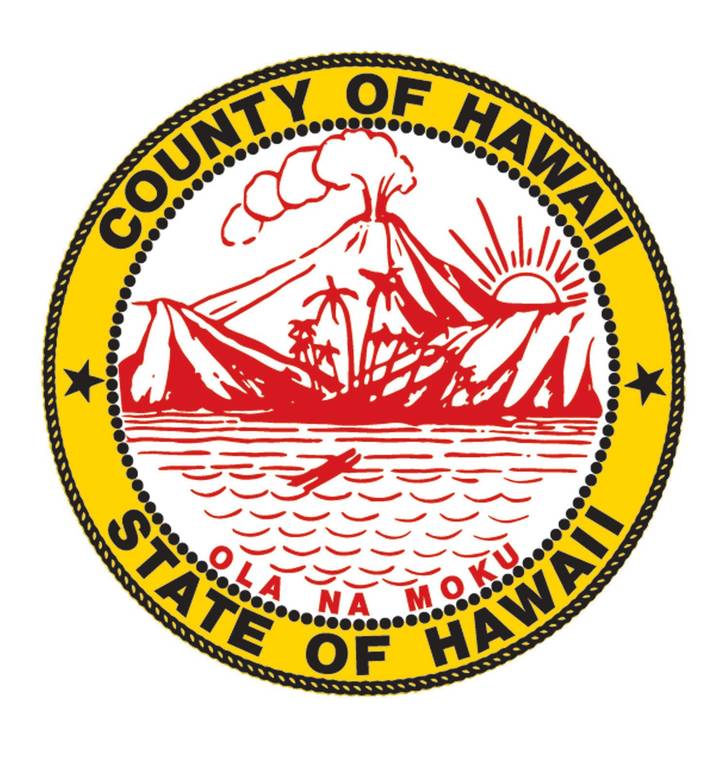HILO — Despite deep misgivings from some members, a County Council committee on Tuesday recommended the passage of a resolution that would grant the county $10 million in state funds to pay for police enforcement on Maunakea.
The resolution authorizes Mayor Harry Kim to enter an agreement with the state to receive $10 million to reimburse the county for law enforcement costs incurred as a result of heightened police presence around Maunakea Access Road, where opponents of the Thirty Meter Telescope have camped in protest since July.
The resolution — and a companion bill appropriating the $10 million to the proper account — was strongly opposed during Tuesday’s Finance Committee meeting by Puna Councilman Matt Kanealii-Kleinfelder, who grilled county Corporation Counsel Joe Kamelamela on the nature of the agreement.
Despite having discussed the county being reimbursed for Maunakea-related law enforcement costs for months, none of the council members have ever actually seen the agreement between the county and the state, Kanealii-Kleinfelder said.
Kamelamela said the council members never actually asked to see the agreement, although several members scoffed at that claim. Kanealii-Kleinfelder said the committee has repeatedly asked about the terms of the agreement for months.
“Today, we’re being asked for the first time to agree to this magical unicorn of an agreement,” Kanealii-Kleinfelder said, arguing that the lack of transparency regarding the agreement was in violation of Hawaii Revised Statute 46-7, a statute that requires such agreements to be made “with the consent of the council.”
Having not seen the agreement, Kanealii-Kleinfelder said the committee has no way of knowing whether the money comes with any strings attached. The county has actually only spent about $4.5 million in police costs as of Nov. 1, said Finance Director Deanna Sako, leaving an open question about on what the remaining $6.5 million will be spent.
Sako said the $10 million number was arrived at arbitrarily because it was sufficiently high to cover the increasing police expenses as the agreement was being developed. However, Kamelamela said the remaining $6.5 million is expected to pay for continued enforcement at the access road.
“If the council’s going to say no to $10 million, that’s fine,” Kamelamela said.
Kamelamela repeatedly said he does not think the agreement is illegal, a defense which evidently failed to assuage the worries of many of the council members.
Kona Councilwoman Rebecca Villegas said the committee was placed in a tough position: either approve the agreement sight unseen or deny the county a badly needed infusion of $10 million. While Villegas said the decision was obvious — “how are we going to say no to $10 million?” she asked — the situation placed the committee in a position where it was impossible to fully defend the interests of the county.
Sako pointed out that refusing the funds would require the county to find another source of money to reimburse the police costs, which would be extremely difficult with a budget that has already been accounted for up until next June.
Hamakua Councilwomen Valerie Poindexter and Finance Committee Chairwoman Maile David also voiced misgivings with the agreement, with the former lamenting that such money is being spent on policing the TMT protests at all, calling the access road “the most peaceful place on the island.” Several other council members remained quiet on the issue.
“I’m surprised by the silence of this council on this,” Kanealii-Kleinfelder said. “We’re about to sign an agreement without knowing anything about it.”
“It’s simple,” retorted Kohala Councilman Tim Richards. “I disagree with what you’re saying.”
Richards said the Council regularly accepts funds without scrutinizing their provenance and saw no reason this agreement is any different.
Ultimately, Sako said the Council should recommend the resolution, which will be approved or disapproved at a future meeting of the full County Council. In the intervening time, she said, Kamelamela will furnish the Council with copies of the agreement so members can make an informed decision.
Most of the council members agreed, ultimately voting to move the resolution and its companion bill to the full council. However, Kanealii-Kleinfelder and Hilo Councilman Aaron Chung voted against approving both articles.
Email Michael Brestovansky at mbrestovansky@hawaiitribune-herald.com.



